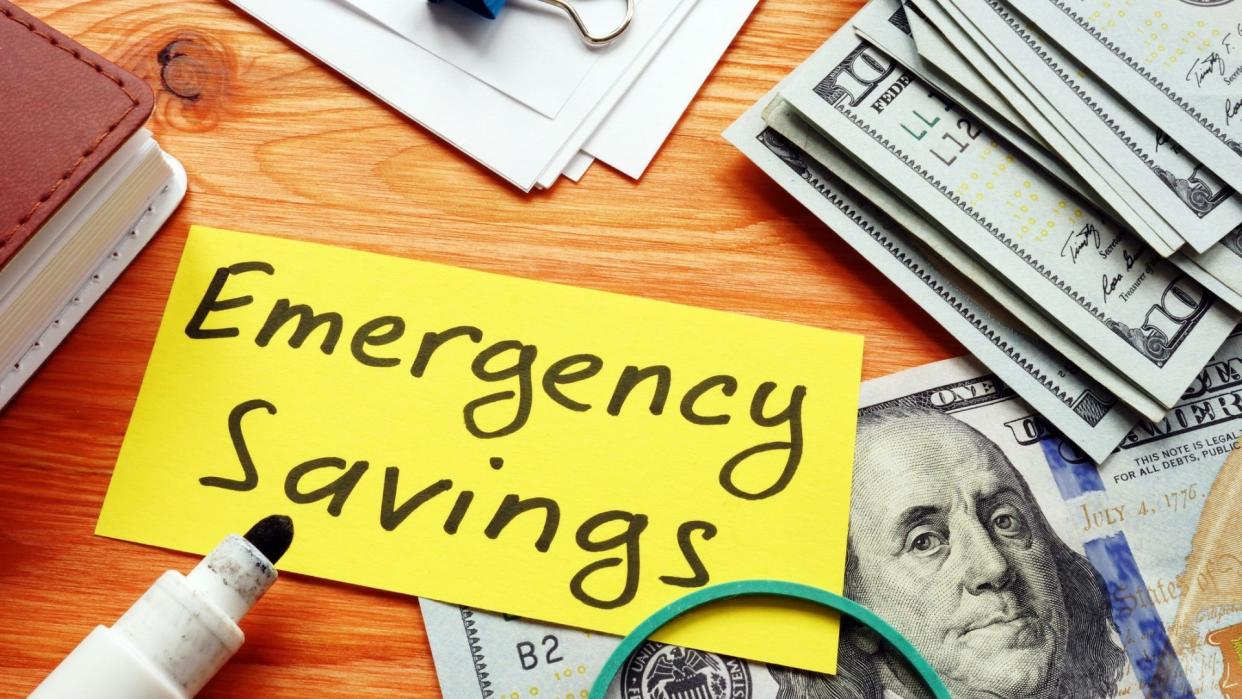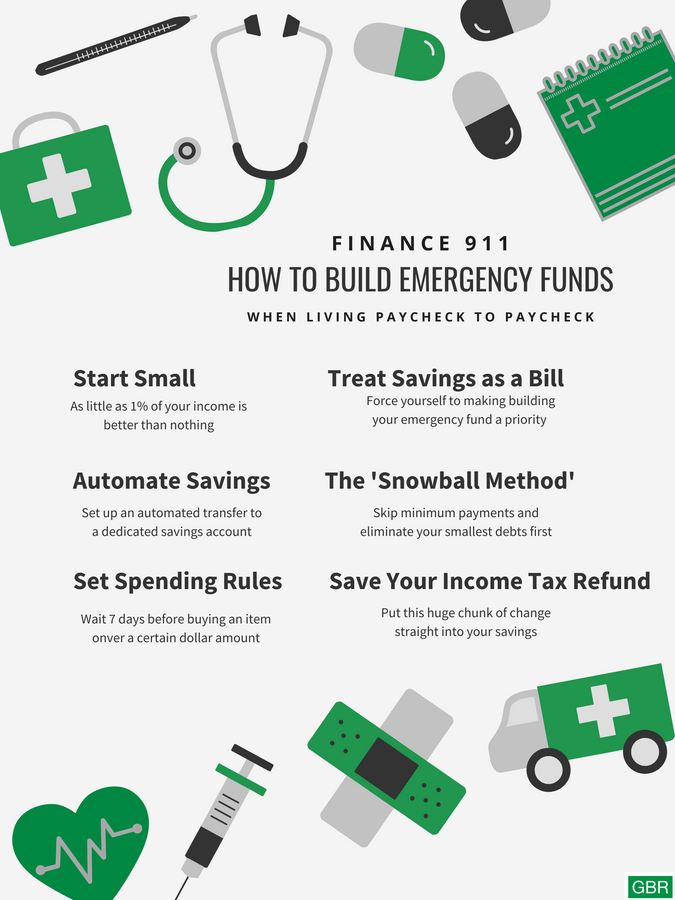How To Build Your Emergency Fund When Living Paycheck to Paycheck

If the pandemic has taught us anything, it’s that we often cannot predict when and how we might need to have extra cash on hand.
According to Pamela Yellen, founder of Bank on Yourself and New York Times bestselling author of two books on money including “Rescue Your Retirement,” 63% of Americans are living paycheck to paycheck, and 47% have run out of their emergency savings.
Save Money: 25 Extra Grocery Costs You’re Probably Forgetting About
Find Out: Surprising Things You Can Buy With Food Stamps
“Living paycheck to paycheck can feel completely disempowering,” said Carter Seuthe, the vice president of content for Credit Summit. “It can be overwhelming to think about setting money aside when there are so many immediate expenses.”
While financial experts repeat the same standard line, that you should really have three to six months of funds in the bank to cover unexpected expenses, job loss or emergencies, when money is tight, it’s hard to know where to find extra cash. Here, experts weigh in on tips to find extra money in what may seem like an impossible situation.
Start Small
If you’ve avoided putting money in savings because you feel like it should be a significant amount, Seuthe said, “the best way around this is to start small.” While financial advisors recommend setting 20% of your income aside, if that’s unrealistic, as little as even 1% is better than nothing, Seuthe said. “As long as you can afford not to touch it, you’ll be growing a cash reserve for when you need it most.”
Poll: Do You Think the Fed Raising Rates Will Help or Hurt the Economy?
Treat Savings as a Bill
Starting to put a little bit of money aside can become easier if you treat it as a bill, said Sam Barna, a money coach and owner of The Intentional Cents. “By doing this, you force yourself to prioritize building your emergency fund as opposed to simply contributing whatever money is left at the end of the month.”

Automate Savings
If you can find the money to treat savings like a bill, the best way to ensure it really gets saved is by automating it through your bank, said Adam Wood, co-founder of RevenueGeeks. “Set up an automated transfer from your checking account to your dedicated emergency savings account for the money saved each month from decreasing spending.”
Pay Down Debt via the ‘Snowball Method’
If your debts are what’s holding you back from being able to save, Jessica Lipton, business expert and founder of Elevate Delta 8, recommends the snowball method. This means rather than paying the minimum payment on each liability (such as credit cards), you build momentum by eliminating the smallest debts first. “This rewards you by eliminating entire accounts more quickly, enabling you to make larger contributions to your savings,” she said.
Save Your Income Tax Refund
If you’re getting a tax refund every year, this may be one of the few times you have a chunk of change that could go straight into savings. “This can be hard because the extra money can be tempting, especially since you receive it at the beginning of the year, but that can serve as your savings foundation,” said Craig J. Lewis, founder and CEO of Gig Wage.
Adopt a Zero-Based Budget
If you’re living paycheck to paycheck, you probably know your finances intimately, said Heather Albrecht, a financial coach and founder of Balance Financial Coaching. In which case, it should be pretty easy to create a zero-based budget. This means that you account for every dollar that comes in, be that toward bills or savings. Then, if you budget a higher amount for something like gas or food, but spend less, you put the money you didn’t spend directly into savings. “Make a goal thermometer and post it on your fridge. Color that in each time you add money to it…and when you do reach that goal, be sure to celebrate,” she said.
Set Spending Rules
Depending upon how you budget, you might have a tiny window of income you use for leisure activities or nonessential purchases, from clothes to going out. Yellen recommends you set spending rules, “such as waiting seven days before purchasing any item over a certain dollar amount that isn’t absolutely essential.” She finds that simply waiting can often help you determine whether you really need that item. If you don’t buy it, put the amount you would have spent into savings.
More From GOBankingRates
This article originally appeared on GOBankingRates.com: How To Build Your Emergency Fund When Living Paycheck to Paycheck

